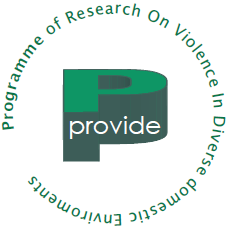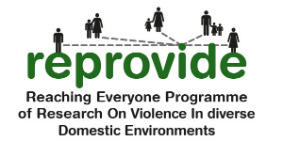
Dr Jayne Bailey, Research Fellow Domestic Violence and Health Research Group, School of Social and Community Medicine,
University of Bristol
Until recently the “translation of research” to many meant language translation for the relevant international audience.
However, in research-speak, there are now several ‘translational gaps’ and it really depends on your pathway of research (ie. early development vs. applied health) as to what this means to you.
Research in the field of domestic violence and health falls within the applied health and social sciences sector and the translational gap we aim to bridge is often the gap between research findings, and implementing research and influencing policy.
However, we should not overlook the translation of research to different languages and cultures and a recent meeting which was part-funded by PolicyBristol explored and reflected on this.

Credit – pixabay.com
Translatable interventions
As an invited speaker to the GESINE network meeting on Women and Mental Health, I presented the findings from University of Bristol research from the Programme of Research on Violence in Diverse Domestic Environments (PROVIDE). GESINE is part of the Women Against Violence Europe (WAVE) network, and is a women and health competence centre in North Rhine-Westphalia, Germany, which aims to improve the health sector response to women who are victims of violence.
It was particularly humbling to have a translator for my purposes at this German-language conference, but this actually raised some really interesting questions about the ‘translatability’ of some of the interventions developed by our research.
For example, PROVIDE included a randomised controlled trial of a psychological intervention for women who have experienced domestic violence and abuse (DVA).
The novel aspect of this work is that specialist workers in the DVA sector were trained to deliver the intervention – they didn’t have to be a psychologist or a doctor. This meant that specialist DVA advocate workers could use their expert knowledge and also deliver an effective psychological programme to women who needed it.

PROVIDE is a UK National Institute of Health Research funded programme which ran between October 2009 and September 2014.
The GESINE team were very excited by this and we started discussions around whether it would be a good model to use in Germany.
However, they said that in Germany the provision for mental health care for women who have experienced DVA is very different and that they didn’t have advocates, but did have psychologists! Oh and there’s the issue of translating all of the research material and training manuals that are used… OK, let’s look at that – why don’t you come over to Bristol and let’s discuss how we could develop an international collaboration?
Serendipitously, GESINE had recently been funded to set up a programme of research into violence, abuse and risk in men and health and were interested to find out more about our newly funded research programme, REPROVIDE, which also considered men.

REPROVIDE is a research programme funded by the UK National Institute of Health Research (NIHR) running between February 2016 and January 2022.
Outcome measures for women – what matters? Perpetrator Programmes – what works?
These discussions led to the organisation of a 2-day international workshop to consider Interventions to improve the mental health of women who have experienced DVA, and men and perpetrator programmes.
The invited participants and content of the workshops fed into the development of our research programme and formed the starting point for an international forum on good research practice for domestic violence perpetrator research.
The participants were a mixture of practitioners, commissioners and academics and came from Germany, Spain, USA, Finland, Hull, London, Brighton, Portsmouth and more locally.
!["North Hampton is a Domestic violence free-zone" (Massachussetts). Credit - Ben Pollard [CC BY-SA 2.0], via Wikimedia Commons](https://policybristol.blogs.bris.ac.uk/files/2016/09/512px-Domestic_violence_free-zone.jpg)
“North Hampton is a Domestic violence free-zone” (Massachussetts). Credit – Ben Pollard [CC BY-SA 2.0], via Wikimedia Commons
The discussions on both days were hugely rich and informative and it was clear that victims and perpetrators of DVA are recognised and provided for in very different ways across countries.
For example, in Germany there are no discussions around men as victims and virtually no discussion around men being perpetrators of abuse.
In the USA and Spain most programmes for male perpetrators are court mandated only and there is a severe lack of system connections throughout the sector across all countries. There is also the requirement to collect better data on impact of DVA – with regard to physical and mental health, but also the wider economic costs to society.
System disconnects and culturally different ways of working within each ‘system’ do not help this.
The workshops, held in May 2016, were the first of this kind; bringing together international experts in this small workshop format to consider interventions and domestic violence research.
This nascent group could be the catalyst for change in the way DVA research is conducted. By bringing in commissioners and policymakers so that we can all begin to understand each other’s needs with regard to what evidence is and how this is translated, we can aim to bridge the gap between policymakers, practitioners and researchers.
